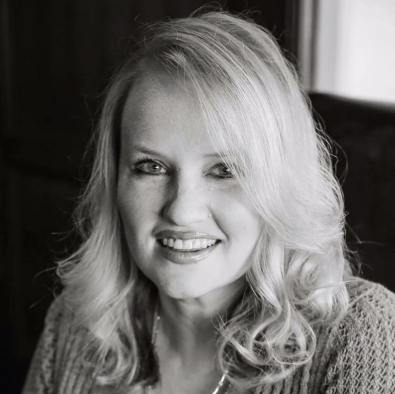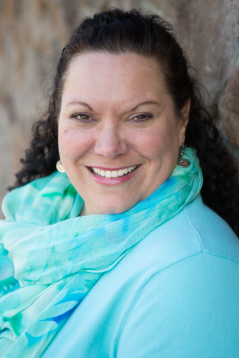
Today we have the pleasure of hearing from the protagonist of Carolyn Miller’s new novel!
Q: Miss Serena Winthrop, welcome. I’d like to start by asking about your pretty name, Serena, and whether it is a family name passed through generations of Winthrops.
A: Thank you. Serena is not a family name as such, but a name my father chose, as he was hopeful it would prove indicative of a calm and temperate character. I believe some might think it well chosen, although those who know me well would likely beg to disagree.
Q: Would you mind telling us more about your family?
A: I am the younger daughter of Lord and Lady Winthrop. My father, the Baron, died last year, and circumstances led to a distant cousin inheriting the title, which proved quite shocking at the time. Now, however, my mother and sister are reconciled to the situation—and to him. My sister, Catherine, recently married Jonathan, so I am very pleased to have someone so kind and generous as Jon look out for me as an elder brother.
Q: I’m so sorry to hear about your father. That must have been extremely trying. Would you mind telling us about where you went to school and your time there?
A: I attended Miss Haverstock’s Seminary for Young Ladies in Bath, Somerset. Beyond that, I have nothing more to say.
Q: Oh! Well, now that you to graduate from the school room, I imagine you will be embarking upon your first London season soon. Could you please tell us about what you most look forward to?
A: While I understand it is the usual thing for young ladies to look forward to such things, I have no great desire to attend balls or dinners or engage in the sorts of flirtations most people seem to think appropriate. In fact, the only thing in which I would take any real pleasure would be a visit to Somerset House for the Summer Exhibition of the Royal Academy of Art.
Q: Yes, I understand you are something of an artist. Would you care to tell us about your interest in this field?
A: I loveart. I love to draw, to paint, to see how a scene of beauty or an image in my mind can be translated to the page. I find myself getting lost to all else when I am in the throes of sketching or painting, much to my mother’s chagrin. I like both portraits and landscapes, but I’m afraid I have no patience for still life. I know it can prove helpful for developing my technique, but truly, I cannot take any great pleasure in painting a bowl of fruit. A bowl of fruit? I ask you!
Whilst I have worked mostly with watercolors, I would love to try oils even though some consider it an unladylike thing to do; there is something so rich and vibrant about the colors and textures of oils. And while my art never feels like it reaches that sense of truly being complete, in the process of creating, I imagine it must be a tiny bit like what our Heavenly Father must feel in His creation of the world. Not that I think I am like God, though. Far from it!
Q: You sound like you do have faith, though.
A: Of course! I might live in Christian England, but I would call myself a Christian, someone who not only believes in God and in His forgiveness of sins through our Savior Jesus Christ, but someone seeking His direction and guidance every day, through reading the Bible and prayer. I certainly am aware that I need God’s help, as my blunt manner of speaking canlead to trouble sometimes.
Q: Oh my! I hesitate to enquire, but would you care to share an example?
A: I’m afraid I have at times been rather too candid in my assessment of Lord Henry Carmichael’s character. He was dining with my family one time and made one of his usual tiresome remarks which I dared to point out. My mother hushed me to not bother him, and I mighthave said something about his not being bothered by what anyone might say, but rather always feels a sense of superior amusement. I believe my mother despairs at my prospects at ever contracting an eligible match.
Q: Forgive me, but were you truly so bold to the most eligible bachelor in England?
A: (Sniffs) He might be the heir to the Earl of Bevington, and some might call him charming and handsome, but I mistrust gentlemen of manners too smooth; one never really knows where one stands with such a man. And his reputation as a flirt and a gambler does not impress me one jot.
Q: After the gambling debts incurred by your own poor father such a sentiment is understandable. But truly, you do not consider the Bevington estate in Derbyshire something to aspire to? I understand the house and gardens are extremely beautiful, and possess something of a mysterious treasure.
A: I have heard the estate is very grand, but I hold no desire to evenseesuch a thing if it means marriage to a man of Lord Carmichael’s character. However, as he is one of my brother-in-law’s best friends, avoidance of him will likely prove impossible. So I shall just have to grit my teeth for Jonathan and Catherine’s sake, and try to remember to practice charity.
Q: To love one’s enemy?
A: It would be amiss to say Lord Carmichael is my enemy, perhaps better to admit he is merely someone I find intensely irritating. But I am hopeful that I shan’t have much to do with him, and can concentrate on my artwork instead. My dream is to one day have a painting exhibited in the Summer Exhibition, so such a thing demands my full attention.
Q: Our best wishes for your artwork, Miss Serena, and for all your future plans. Perhaps in time your mother’s wishes for your matrimonial success will come true.
A: Thank you. Though I think such an event unlikely, one must surely possess the promise of hope, mustn’t one?
Carolyn Miller lives in the beautiful Southern Highlands of New South Wales, Australia, with her husband and four children. Together with her husband she has pastored a church for ten years, and worked part-time as a public high school English and Learning and Support teacher. 
A longtime lover of romance, especially that of Jane Austen and Georgette Heyer’s Regency era, Carolyn holds a BA in English Literature, and loves drawing readers into fictional worlds that show the truth of God’s grace in our lives. Her Regency novels include The Elusive Miss Ellison, The Captivating Lady Charlotte, The Dishonorable Miss DeLancey, Winning Miss Winthrop and Miss Serena’s Secret, all available from Amazon, Book Depository, Koorong, etc
Connect with her: website | facebook | pinterest | twitter| instagram




 Hello Miss Howard. Won’t you tell us a little about yourself?
Hello Miss Howard. Won’t you tell us a little about yourself? When she’s not reading, she’s dreaming up a new story to tell her readers. She lives in Central Ohio with her husband, two children, and two cats.
When she’s not reading, she’s dreaming up a new story to tell her readers. She lives in Central Ohio with her husband, two children, and two cats. Novel PASTimes: Thank you for visiting with us today. I love your name! It’s quite unusual.
Novel PASTimes: Thank you for visiting with us today. I love your name! It’s quite unusual. Tara Johnson is an author, speaker and singer from Alexander, AR. A passionate lover of stories, she loves to travel to churches, ladies retreats and prisons to share how God led her into freedom after spending years living shackled as a people pleaser.
Tara Johnson is an author, speaker and singer from Alexander, AR. A passionate lover of stories, she loves to travel to churches, ladies retreats and prisons to share how God led her into freedom after spending years living shackled as a people pleaser.
 Kelly Goshorn weaves her affinity for history and her passion for God into uplifting stories of love, faith and family set in nineteenth century America. She is a member of American Christian Fiction Writers and Romance Writers of America. Kelly has been enjoying her own happily-ever-after with her husband and best friend, Mike, for 28 years. Together they have raised three children, four cats, two dogs, a turtle, a guinea pig, a gecko, and countless hamsters. Thankfully, not all at the same time. When she is not writing, Kelly enjoys spending time with her young adult children, scrapbooking with friends, board gaming with her husband, and spoiling her Welsh corgi, Levi. Her debut novel,
Kelly Goshorn weaves her affinity for history and her passion for God into uplifting stories of love, faith and family set in nineteenth century America. She is a member of American Christian Fiction Writers and Romance Writers of America. Kelly has been enjoying her own happily-ever-after with her husband and best friend, Mike, for 28 years. Together they have raised three children, four cats, two dogs, a turtle, a guinea pig, a gecko, and countless hamsters. Thankfully, not all at the same time. When she is not writing, Kelly enjoys spending time with her young adult children, scrapbooking with friends, board gaming with her husband, and spoiling her Welsh corgi, Levi. Her debut novel, 
 Suzanne Woods Fisheris an award-winning, bestselling author of more than two dozen novels, including Phoebe’s Light,the Amish Beginnings series, The Bishop’s Family series, and The Inn at Eagle Hill series, as well as nonfiction books about the Amish, including Amish Peaceand The Heart of the Amish. She lives in California. Learn more at
Suzanne Woods Fisheris an award-winning, bestselling author of more than two dozen novels, including Phoebe’s Light,the Amish Beginnings series, The Bishop’s Family series, and The Inn at Eagle Hill series, as well as nonfiction books about the Amish, including Amish Peaceand The Heart of the Amish. She lives in California. Learn more at 




 .
.
 Hello, Adria. What a pretty name! Do you know why your parents named you that?
Hello, Adria. What a pretty name! Do you know why your parents named you that? Ann H. Gabhart is the bestselling and award-winning author of several Shaker novels—The Outsider, The Believer, The Seeker, The Blessed, The Gifted, and The Innocent—as well as These Healing Hills, Angel Sister, Small Town Girl, Love Comes Home, Words Spoken True, and The Heart of Hollyhill series. She is also the author of the popular Hidden Springs Mysteries series, as A. H. Gabhart. She has been a finalist for the ECPA Book of the Year and the Carol Awards, and has won two Selah Awards for Love Comes Home. Ann and her husband enjoy country life on a farm a mile from where she was born in rural Kentucky. Learn more at
Ann H. Gabhart is the bestselling and award-winning author of several Shaker novels—The Outsider, The Believer, The Seeker, The Blessed, The Gifted, and The Innocent—as well as These Healing Hills, Angel Sister, Small Town Girl, Love Comes Home, Words Spoken True, and The Heart of Hollyhill series. She is also the author of the popular Hidden Springs Mysteries series, as A. H. Gabhart. She has been a finalist for the ECPA Book of the Year and the Carol Awards, and has won two Selah Awards for Love Comes Home. Ann and her husband enjoy country life on a farm a mile from where she was born in rural Kentucky. Learn more at